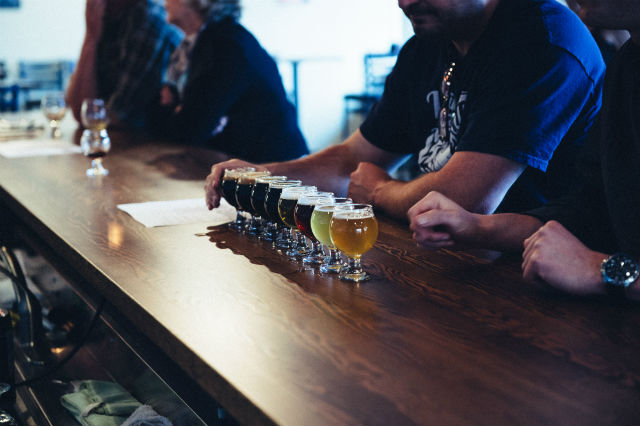
One of the oldest drinks could also be one of your newest ventures as many breweries look to diversify their beverage portfolio.
Not many craft beer breweries across the country tout mead as an outlet of sales, but for Garden Path Fermentations, it was always Ron Extract’s intention for low-ABV mixed-culture meads to be included as part of the production plan.
“I feel there are actually several variations of ‘craft,’” explained the owner of the Burlington, Washington company. “(They) aren’t always tied all that closely to one another.
“With both beer and mead, for example, there’s a strong trend toward using highly processed adjunct ingredients, such as candy bars and breakfast cereals, which isn’t something you generally see on the wine side of things and, I’d say, pretty categorically different from the type of approach we take at Garden Path.”
The Northwest Washington beverage manufacturer — which includes beer, mead, cider and wine — where we’re all about locally grown ingredients and native yeast fermentation.
“Even though some of our products are made from a base of honey, whereas others are made from grain and others from fruit, I feel like they’re all largely in the same broad category in this regard,” Extract said. “I suppose one could say the same about producers who make both beer and mead on the complete opposite side of the spectrum from ours.”
It can be a sticky situation for a brewery to also make mead, but Extract said it just takes time, paperwork, and a helpful TTB agent.
“Washington State is actually pretty easy in this regard, allowing multiple license types to be stacked at a single location,” he said about his facility, which was started along with Amber Watts. “Navigating the TTB requirements was slightly more complicated, as we had to get set up as an alternating premise with a waiver of notice of alternation, but our assigned agent was incredibly helpful in guiding us through this process.”
For every different production, they need to do this. Not only for mead making but also for cider and wine as well.
A long-time mead maker in the industry, Valkyrie owner Randy Lee recalls the ATF needing to be involved in the pre-license inspection of the Northwestern Wisconsin facility, which opened as Viking Brewing in 1994. This interaction led to an accidental creation that the brewery has stuck with since.
“The ATF told us we couldn’t do Mead,” Lee said. “So we took what product we were going to develop and legally made it beer.
“Accident really.”
The brewery makes braggot instead to legally be considered beer, but the process is much more on the mead-making side of production, Lee noted.
Not much is different in planning and using equipment for production compared to a typical beer brewery Lee added. One main difference is the amount of honey needed on hand, of course.
“When we started it was $0.60 per pound and had been for a very long time,” he said. “Last time we bought it, it was closer to $2.50/lb so a drum of honey sets you back a bit.”
Mead making means time, labor, and patience, Extract said.
“We didn’t really need additional space or equipment per se and the cost of our Washington State Domestic Winery License, which we also needed for our cider and wine production, was fairly nominal,” he said. “We found that mead didn’t scale up (from homebrewing) in quite the same way as beer, though, and had a number of failed experiments that didn’t make the cut before producing anything we deemed worthy of release.”
Garden Path has also struggled with the presence of THP (Tetrahydropyridines) in several batches of mead and as a result, has pushed the mead program back into the R&D phase until they’re better able to address this.
“We’ve found that THP can start to resurface well after the fact in mature meads that had previously cleared their THP phase,” Extract said. “We can monitor this closely for products that we keep in-house, but we’re not able to do so when it’s sold off-site.”
Therefore, retailing your mead outside of the taproom can be a tough sell and both agreed to keep sales in-house. Both for quality and financial concerns.
Lee said they used to sell their mead in retail but have pulled that back.
“The problem is that it takes a completely different sales force and technique than beer,” he said. “This is wine sales. Beer sales won’t even sort of cut it to sell the stuff. In Wisconsin, if you’re attempting to do straight mead you’ve got some radically different sales channels that you have to follow so it forces the dichotomy but having two wholesalers in the same area would be a serious pain.”
Being in-house is a better way to sell, Extract said. Mead needs an explanation.
“The meads we make are meant to be very light, dry and subtle, which is something we can explain and properly frame when we serve them ourselves, but which might otherwise be lost.”
Photo courtesy Garden Path Fermentations & Valkyrie Brewing






Be the first to comment